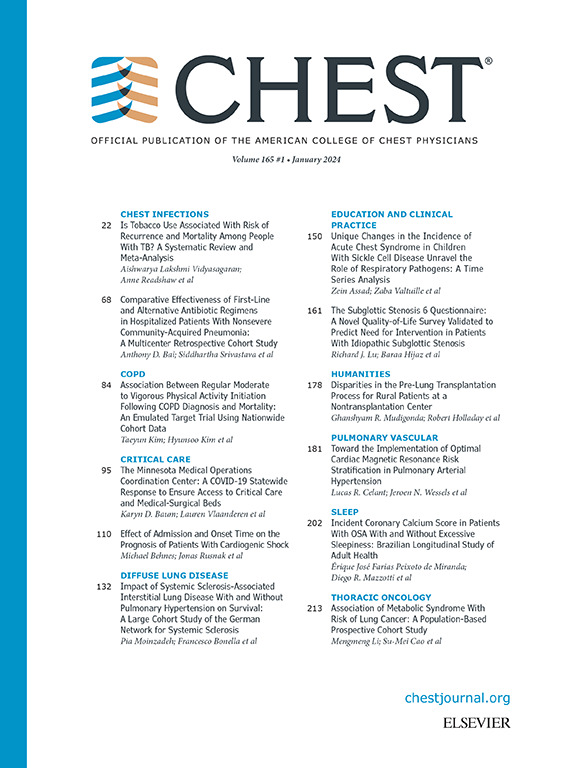Perspectives of clinicians on the value of the Get to Know Me board in the Intensive Care Unit.
IF 9.5
1区 医学
Q1 CRITICAL CARE MEDICINE
引用次数: 0
Abstract
BACKGROUND Critical illness can render patients at heightened risk of anonymity, loss of dignity and dehumanization. As dehumanization results in significant patient distress, it is imperative to find ways to humanize care in the ICU. A Get to Know Me Board (GTKMB) is a personal patient profile designed to bring the patient from anonymity, yet its widespread adoption has been challenging. RESEARCH QUESTION Identify perspectives of ICU clinicians on the value of the GTKMB in caring for ICU patients. STUDY DESIGN AND METHODS This qualitative study used focus groups conducted via videoconference. We recruited stakeholders from multiprofessional teams across different ICU settings at a large U.S. quaternary care center. Thematic content analysis approach was performed to identify key themes and concepts. RESULTS We interviewed 38 participants in 6 focus groups including 10 nurses, 7 physicians, 6 advanced practice providers, 5 rehabilitation therapists, a respiratory therapist, and a social worker. Themes highlighted the role of the GTKMB in multiple domains including a) humanizing care of the critically ill, b) fostering communication, c) connecting with families and d) guiding and facilitating care processes. Several sub- themes were identified for each category. INTERPRETATION The GTKMB was considered important in fostering humanized caring in the ICU by diverse members of an interprofessional ICU team, helping to facilitate communication, establish family connection, and guide care.临床医生对重症监护室 "认识我 "板块价值的看法。
背景重症患者可能面临匿名、丧失尊严和非人化的更大风险。由于非人化会导致患者痛苦不堪,因此必须设法使重症监护病房的护理人性化。研究问题确定重症监护室临床医生对 GTKMB 在重症监护室患者护理中的价值的看法。我们招募了来自美国一家大型四级医疗中心不同 ICU 设置的多专业团队的利益相关者。我们在 6 个焦点小组中采访了 38 名参与者,其中包括 10 名护士、7 名医生、6 名高级医疗服务提供者、5 名康复治疗师、1 名呼吸治疗师和 1 名社会工作者。这些主题强调了 GTKMB 在多个领域的作用,包括 a) 为重症患者提供人性化护理;b) 促进沟通;c) 与家属建立联系;d) 指导和促进护理流程。GTKMB在重症监护病房的人性化护理方面发挥着重要作用,它由重症监护病房跨专业团队的不同成员组成,有助于促进沟通、建立家庭联系和指导护理。
本文章由计算机程序翻译,如有差异,请以英文原文为准。
求助全文
约1分钟内获得全文
求助全文
来源期刊

Chest
医学-呼吸系统
CiteScore
13.70
自引率
3.10%
发文量
3369
审稿时长
15 days
期刊介绍:
At CHEST, our mission is to revolutionize patient care through the collaboration of multidisciplinary clinicians in the fields of pulmonary, critical care, and sleep medicine. We achieve this by publishing cutting-edge clinical research that addresses current challenges and brings forth future advancements. To enhance understanding in a rapidly evolving field, CHEST also features review articles, commentaries, and facilitates discussions on emerging controversies. We place great emphasis on scientific rigor, employing a rigorous peer review process, and ensuring all accepted content is published online within two weeks.
 求助内容:
求助内容: 应助结果提醒方式:
应助结果提醒方式:


